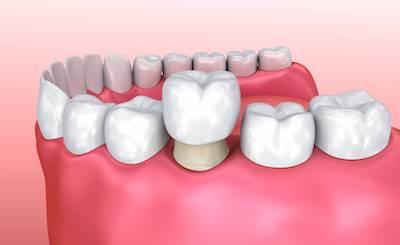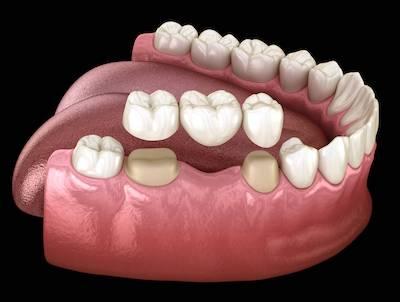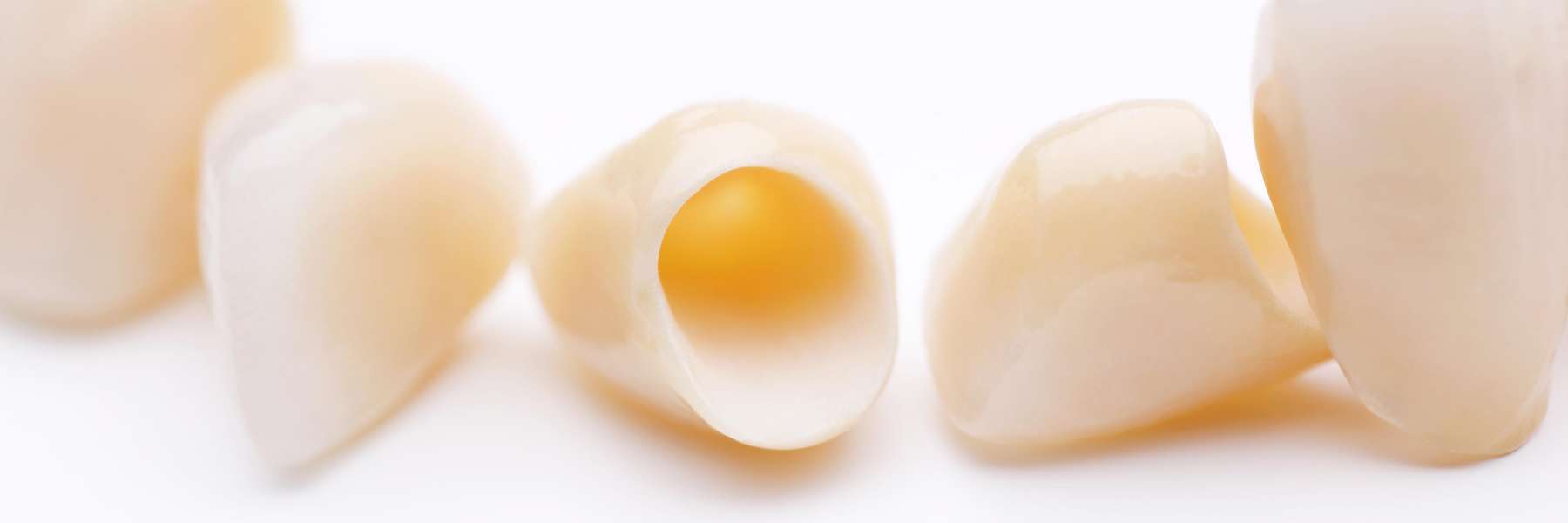
When you are missing one or more of your teeth, your dentist in Paducah, KY, will likely talk to you about your tooth replacement options. With a wide variety of choices regarding tooth replacement, you may have some questions about what’s best for your dental situation.
One option is a removable denture, but the concern with dentures is that they can move around or even fall out of your mouth.
Many people opt for dental implants with a dental crown attached to it or a dental bridge. With the ultimate goal of giving you a beautiful smile, educating yourself on your tooth replacement options is essential to make the best choice possible. So, here is everything you need to know about dental crowns and bridges.
What Are Dental Crowns and Bridges?
A dental crown serves as a cap that covers your entire tooth; if your tooth has been damaged or has a great deal of decay, your dentist may place a dental crown on top of your natural tooth to protect and strengthen it.
Dental crowns in Paducah, KY, are also used on top of dental implants. If you are missing one or more teeth, your dentist can surgically place a titanium post into your jaw. This post acts as your tooth’s root and will give your new tooth the support it needs to bite down and chew. Once the post has integrated into your jaw, an attachment piece, known as an abutment, is placed on the post before a dental crown is placed on top of the abutment to finish the process.
Dental bridges, on the other hand, are only used when you have missing teeth. Dental bridges have a crown on each end that keep the replacement teeth secure; these replacement teeth “bridge the gap” where you were once missing teeth.
Regardless of the tooth replacement option you choose, you must replace your missing teeth to keep your remaining teeth from shifting into the empty gap and potentially causing bite issues.
How Are Dental Crowns and Bridges Made?
First, your dentist may need to file down or shape your tooth for the dental crown or bridge to fit correctly. Then, they will construct a mold or take a digital image of your mouth where the crown or bridge will be placed before sending the mold or image to a lab where your crown or bridge will be created.
Your dentist will place a temporary crown or bridge in your mouth while you wait for your permanent one to be made, and then you will return to your dentist’s office to have the permanent crown or bridge attached or cemented into your mouth.
What Are the Pros and Cons of Dental Crowns?
If you are considering dental crowns in Paducah, KY, it’s essential to consider the pros and cons of this type of dental treatment.
The pros of dental crowns are that they:
- Restore your damaged or cracked teeth
- Correct your tooth alignment
- Correct tooth discoloration
- Replace your worn-out fillings before they fail
- Prevent your tooth from breaking after a root canal
The cons of dental crowns are that they:
- Require your dentist to shave down your natural tooth
- May cause sensitivity to hot or cold
- May need to be repaired or replaced
What Are the Pros and Cons of Dental Bridges?
If you are considering dental bridges in Paducah, KY, it’s essential to consider the pros and cons of this type of dental treatment as well.
The pros of dental bridges are that they are:
- More comfortable than dentures
- More secure than dentures
- A faster treatment option than dental implants
- Less expensive than implants
- A viable alternative to replace several teeth
- A viable option if you have bone loss
The cons of dental bridges are that they:
- May not last as long as dental implants
- Require healthy teeth on either side of the bridge to support it
- Increase your chances for tooth decay
 How Long Do Dental Crowns and Bridges Last?
How Long Do Dental Crowns and Bridges Last?
There are certain factors and behaviors that can damage dental crowns and bridges or cause them to loosen or fall out; these include the following:
- Chewing hard food or ice
- Chewing hard objects
- Periodontal disease
- Bone loss
However, if you practice good oral hygiene, your dental crowns and dental bridges in Paducah, KY, could potentially last anywhere from ten years to the rest of your life. Here’s what you can do to preserve your dental crowns and bridges:
- Brush two times a day for two minutes.
- Floss your teeth daily or use a water flosser daily.
- Use antimicrobial mouthwash daily.
- Consider a tongue scraper.
- Visit your dentist for regular dental cleanings and checkups.
Are You Looking for a Dentist in 42003?
If you need a dentist who cares about you and your family’s oral health, look no further than Smile Station. We want to be your family dental station and provide you with the best possible dental care. Our compassionate team of professionals is ready to take your call at (270) 408-1234.
